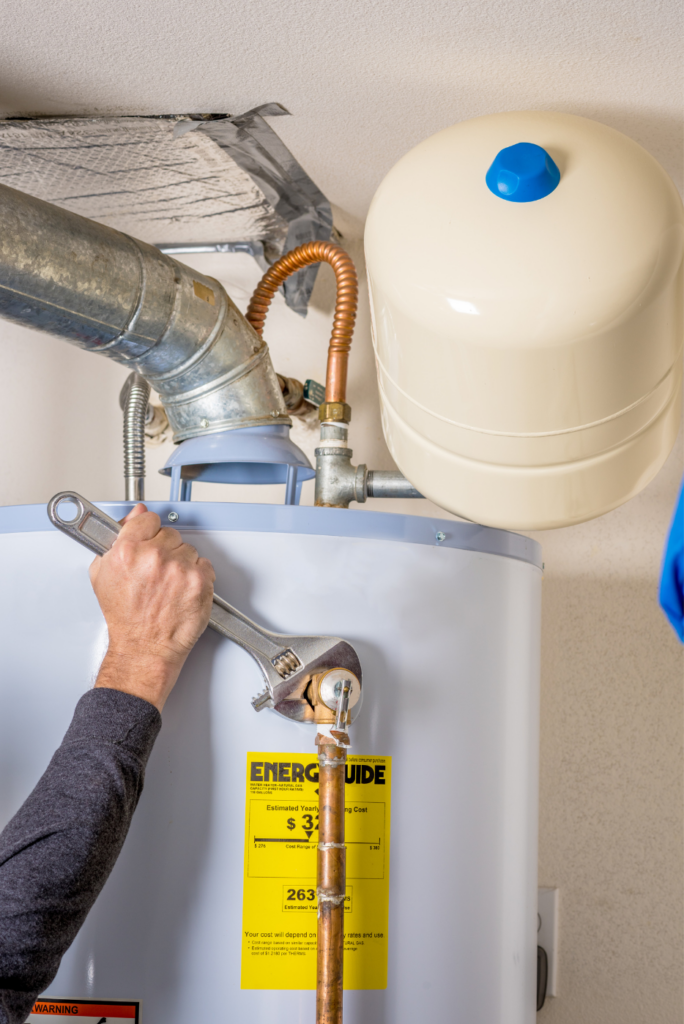Addressing Common Heater Problems
Addressing Common Heater Problems
Blog Article
We've discovered this article relating to Water Heater Repair and Troubleshooting below on the net and accepted it made perfect sense to relate it with you on this site.

Think of beginning your day without your regular warm shower. That currently sets a poor tone for the remainder of your day.
Every house needs a reputable hot water heater, yet just a couple of understand exactly how to handle one. One simple method to keep your hot water heater in leading form is to check for faults routinely as well as repair them as quickly as they show up.
Keep in mind to turn off your water heater prior to sniffing around for faults. These are the hot water heater faults you are more than likely to run into.
Water too hot or also cold
Every hot water heater has a thermostat that determines exactly how warm the water obtains. If the water coming into your house is also warm in spite of establishing a convenient maximum temperature level, your thermostat could be faulty.
On the other hand, too cold water may be because of a fallen short thermostat, a damaged circuit, or incorrect gas flow. For instance, if you use a gas water heater with a busted pilot light, you would get cold water, even if the thermostat is in perfect problem. For electrical heating systems, a blown fuse might be the culprit.
Not enough warm water
Water heaters been available in numerous sizes, depending upon your warm water needs. If you lack warm water before every person has had a bathroom, your hot water heater is also little for your family size. You need to think about installing a bigger hot water heater tank or choosing a tankless water heater, which occupies less area and is extra long lasting.
Unusual sounds
There go to least 5 kinds of noises you can learn through a hot water heater, but the most common interpretation is that it's time for the hot water heater to retire.
First off, you should be familiar with the normal appears a hot water heater makes. An electrical heating system may appear various from a gas-powered one.
Popping or banging sounds generally suggest there is a slab of debris in your containers, and it's time to cleanse it out. On the other hand, whistling or hissing noises might just be your shutoffs allowing some pressure off.
Water leakages
Leakages could originate from pipes, water links, valves, or in the worst-case situation, the container itself. Over time, water will rust the tank, as well as locate its escape. If this takes place, you require to change your water heater immediately.
However, prior to your change your entire tank, make certain that all pipelines remain in area which each shutoff functions perfectly. If you still need assistance recognizing a leakage, call your plumber.
Rust-colored water
Rust-colored water means among your hot water heater parts is rusted. It could be the anode pole, or the container itself. Your plumber will certainly be able to identify which it is.
Warm water
Regardless of how high you established the thermostat, you will not get any kind of hot water out of a heater well past its prime. A hot water heater's efficiency might decrease with time.
You will certainly also obtain warm water if your pipes have a cross connection. This suggests that when you activate a tap, warm water from the heating unit flows in along with regular, cold water. A cross connection is very easy to area. If your warm water faucets still follow closing the hot water heater shutoffs, you have a cross link.
Discoloured Water
Rust is a major root cause of unclean or discoloured water. Deterioration within the water container or a failing anode pole might trigger this discolouration. The anode rod safeguards the storage tank from rusting on the inside as well as ought to be checked annual. Without a pole or a properly working anode pole, the warm water quickly corrodes inside the container. Call an expert water heater professional to determine if replacing the anode rod will certainly fix the trouble; otherwise, change your water heater.
Conclusion
Ideally, your hot water heater can last ten years before you need a modification. However, after the 10-year mark, you might experience any one of these faults more on a regular basis. At this moment, you need to include a new hot water heater to your budget.
How To Troubleshoot 3 Common Water Heater Problems in Twin Cities
The Water Heater Is Leaking
A leaky cold water inlet valve A loose pipe fitting A leaky temperature and pressure relief valve A corroded anode rod A cracked tank Turn Off Your Water Heater:
Shut off your gas water heater by turning the gas valve on the unit to the “OFF” position. Shut off your electric water by switching its power off at your electrical panel. Look for a two-pole breaker labeled “water heater” and turn it to the “OFF” position. Move the ball valve connected to the water heater to be perpendicular to the piping at a 90° angle. Look for the Leak:
Depending on whether the water is coming from the tank's top or bottom, you’ll want to look for the leak in different locations.
If the leak comes from the top of the tank, carefully look for water escaping from the cold water inlet valve or loose pipe fittings. Rusted hot and cold water valves can have loose connections with the tank, with water leaking out of them.
https://mspplumbingheatingair.com/blog/how-to-troubleshoot-3-common-water-heater-problems
Do you appreciate reading about Water Heaters Problems? Create a short review further down. We will be delighted to hear your feelings about this blog post. Hoping to see you back again in the future. You should take the opportunity to promote this blog entry if you enjoyed it. Many thanks for your time. Please visit our site back soon.
Book-Now Report this page